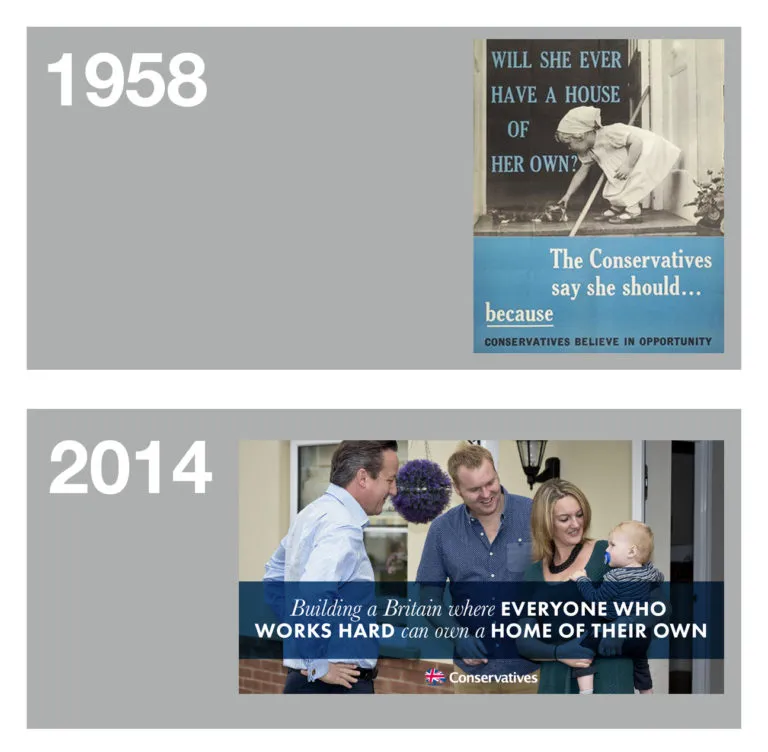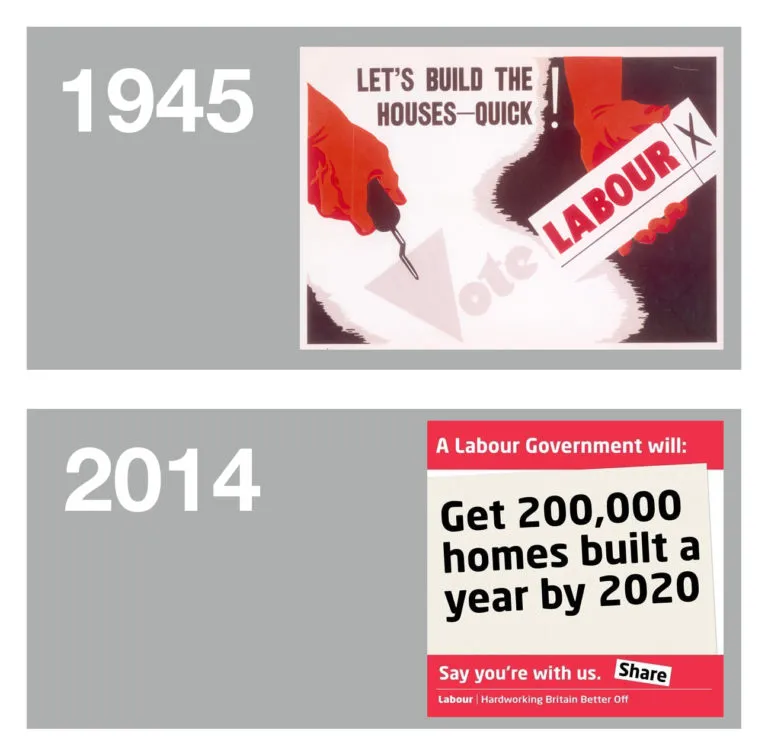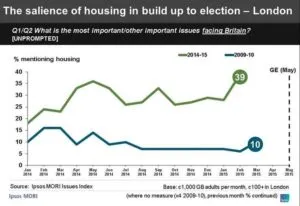Let’s build the houses – quick
Published: by Tom McCarthy
William Hague with a suspicious wig. Tony Blair with those satanic eyes. A snaking queue of the unemployed under the slogan: “Labour isn’t working”.
Election campaign posters tell us stories from elections gone by. Condensing narratives into single messages; and priorities into billboards.
This election though there’s a familiar old face on the block clambering for attention at bus stops (and now on social media too): homes.
Housing is now consistently a top 5 voter issue, beating issues like crime and education which have traditionally polled much higher. Strategists are recognising this. And on Monday this came to fruition when the Conservatives made the issue a central pillar of their campaign.
Interestingly, their ads carry an echo of messages that seemed buried decades ago.
Other parties are adopting the same tactic too. Here’s Labour’s efforts on the issue, from past and present.
You see back in the day housing was the election issue. Politicians of all parties raced to outcompete each other on how many homes they would build. With the issue soaring up the agenda once again we’ve seen the parties prioritise it when appealing to voters.
So how has housing been resurrected from elections past to become a major issue again?
Housing is in a different place electorally to where it was in 2010 or 2005. Back then it was consistently drowned out by other issues – too many people didn’t get why it was relevant to them.
In 2015, the housing shortage is a major concern, including for those well off but worried about their children’s prospects and other voters who perhaps in the past would not have seen it as an issue for them. Equally the number of people finding themselves in unacceptable housing situations is expanding fast: the latest figures from the English Housing Survey and the strain on Shelter’s helpline are both testament to that.
In London this is particularly pronounced (see Ben Marshall’s image below), but nationally the story is the same.
This election, we’re set to see it decide people’s votes. The parties are acknowledging this and giving it real attention.
A huge step forward for those of us campaigning on the problem. Housing finally making it into the spotlight, but with further to go.
But there’s a flipside. If people care about housing, they don’t want to just hear you pay lip service to it. They’re expecting something big on how you’ll fix it.
Lay out plans to tackle the lack of affordable homes, without saying how you will actually build more (genuinely) affordable homes, and you’ll be ripped apart.
The Conservatives witnessed this on Monday. Their announcements on Starter Homes were criticised because they will pay for partially affordable homes, by undermining the requirement to build actually affordable homes. A Starter Home in London would come in at anything up to £450,000 – which would require a joint annual income of £100,000. Hardly a game-changer.
Natalie Bennett also fell victim the week before. Without answers on how she’d pay for 500,000 homes, live on air, she received some pretty rough treatment (although as Evan Davies argued, there is a way to pay for it).
What’s clear is that big, bold answers are needed, rather than schemes or initiatives. A meaningful credible plan is required, that actually answers the real problem. And people’s real concerns.
Of course the housing crisis is going to be difficult to tackle. And it will take time, money and political will.
But there are solutions. We outlined our views in a joint report we released with KPMG last year (PDF). Crucially, we showed that you can start to turn around the problem within a single parliament.
So welcome back housing. We look forward to the billboards gracing our streets once again with promises and hopes of “building a better future” for a “home of their own”. But just make sure you come prepared with real answers.


